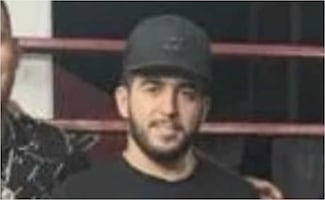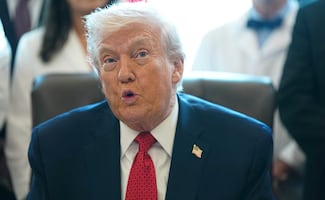Más Información
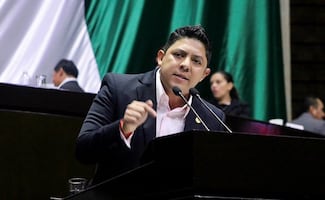
En SLP nunca ha existido una gobernadora y ahora hay una posibilidad real que así sea, asegura Ricardo Gallardo tras aprobación de "Ley Esposa"
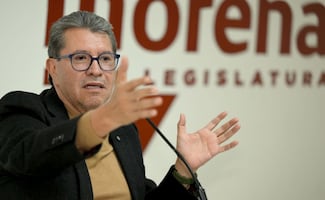
Morena analiza disminución de pluris y elección popular de consejeros del INE: Monreal; serán revisadas en la reforma electoral, dice
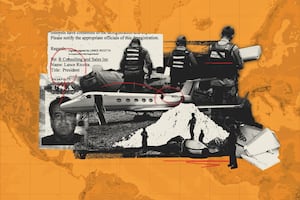
Rastro de jets vinculados al narcotráfico lleva a un vendedor en California… y a un punto ciego de la regulación aérea en Estados Unidos

Secretaría Anticorrupción sanciona a dos empresas por buscar contratos con información falsa; imponen multa de miles de pesos

Banxico se despide de 2025 con otro recorte a la tasa de interés; queda en 7% por ajuste de 25 puntos base
The PAUTA program (Adopt a Talent Program) is the perfect example of how the recreational development o f scientific abilities from an early age to strengthen the abilities for everyday life.
In San Cristobal de las Casas, the average annual weather is under 15°c. Taking a shower is not easy, especially during cold mornings, so a girl named Xochitl decided hot showers should be for all and started working on a water heate r using recycled materials . The project titled “Warm showers for everyone” has received awards for a 9-year-old girl from Chiapas but it has been no easy task: she has been working on it for four years, almost half of her life. Despite her young age, her goals are clear and her passion is evident.
In the beginning, the device only heated the water for three seconds. Now the temperature is enough for three showers. She has also had to try the water heater at different heights because the idea is to have hot water at her home but also share it with others. “What she wants is to make a free patent to share the instructions on how to make a solar water heater using waste materials,” explains Gabriela de la Torre, the PAUTA director, a project from the UNAM's Nuclear Sciences Institute that emerged in 2007 and became a civil society organization.
“What PAUTA is looking for is to develop scientific abilities in children,” explains the Doctor in school psychology and development , who explains that the main purpose is not to teach content. The priority is to create a background full of abilities to learn to observe with logic . This is how social entrepreneurship and communication abilities can provide children with more tools for their everyday life and they can even discover their vocation. This is possible through extracurricular workshops that take place every 2 weeks and besides the methodology based on constructivism, children are tutored until they decide to leave the program, so they can be part of the program when they turn 4 and continue until they become adults.
The idea is to be able to see that science is everywhere and that it can help to solve problems around us: “ Science is not foreign, it is not something that only takes place at laboratories; when we brush our teeth or cook, that is science. We want to show children that they are scientists and that that is an area that can advance. What we are looking for is the development of a critical way of thinking and it will be useful for them to know why they eat certain things, why they chose a certain person to spend their life with or why they vote the way they vote. There are other paths to reach those reflections, such as art, among others, but the path we know is science .”
A seedbed of stories
This program has accompanied hundreds of children and teenagers whose journey started by sending a letter explaining their motives and another where they commit to staying in the program for a year at least. The results are many stories where a question sparked a project with a social impact.
For example, Adonis , a child from Mexico City. He is 15-year-old and has been part of PAUTAS for 7. His project is to make cups using corn . The plan is to create bio-plastic and using it for commercial purposes.
In Michoacán, Jairo, a 12-year-old, decided to make a coating for walls, an anti-graffiti lining using cacti mucus. He has been working on it for five years.
The program
1600 children were enrolled in the project this year
and there are two formats . The first is the workshops , which take place in different venues in Mexico City, Querétaro, Michoacán, Chiapas, and Morelos. In Mexico City, the program is coordinated from the Nuclear Sciences Institute and the main venue is the Small House of Sciences, inside the Universum museum . The other format includes working in science clubs in schools, such as extracurricular workshops where an expert from PAUTA collaborates with the teacher in charge of the group. Both formats have the same purpose, the only difference is the geographical space where it takes place.
This way, there are children who work on their project for years, while others work in different areas and work on different projects. One or several mentors, according to the diversification of the tasks, accompany them through their journey. Scientists from different fields are in charge of guiding the children. In an altruist gesture, they donate their time to fulfill different activities, from writing a letter to encourage the children to dictate conferences and accompanying them in the classroom and laboratories to pursue their goals.
Creating change
The different contexts where the children live generate new ideas . “We have other girls in Morelos who are daughters of farmers and they realized that their families, who planted strawberries , were affected by a plague called “blind hen”, so they made an environment-friendly pesticide and were able to rescue 40% of the harvest before it was lost by the impact of the insect ,” explains the director of PAUTA , who adds that these children are looking to change reality but there are also those who research theory. “They are children who prefer to investigate black holes , that is, they prefer theory .” The idea is to develop scientific areas on different fronts.
Although this is not the purpose of the program, Gabriela de la Torre explains that 70% of the children who were part of PAUTA enroll in scientific careers , although this is not always the case. For example, Elvis worked at PAUTA for 12 years and finally decided to become a lawyer but with the firm intention to create a low in regards to micro-plastics , the tiny plastic spheres that measure less than 5 millimeters and that easily pollute . It is considered that there are at least 4,000 million spheres in every kilometer in the sea.
A global echo for everyone
STEM education
means Science, Technology, Engineering, and Mathematic s. This concept has been developed worldwide as a new way to teach different sciences.
This type of education is part of the education systems that have inspired PAUTA in Mexico , for example, La main à la pâte in France , launched in 1996 by Physics Nobel Prize Georges Charpak and the French Science Academy , which has the purpose to renovate science and technology education in basic education in the country, favoring education based on the methodology of scientific research . Currently, this European project has collaborated with over 50 countries. It should be mentioned that France has been able to maintain its place among the first countries in scientific development.
Mexico has just started its journey. According to numbers from the OECD , it's been calculated that around 48% of students in Mexico are below the basic science knowledge levels and less than 0.1% of 15-year-old students have some of the most competitive levels. This is why there is a lot of interest to cultivate scientific thinking from an early age and are becoming more necessary every day, and as well as enrolling girls . “The first years, in kinder garden, they are focused on girls. We work with Sesame Street in a project called Small Adventurers , and didactic material was made in collaboration.”
De la Torre explains how the youngest members of PAUTA are playfully introduced to the development of abilities through questions such as: if you wash your hands, do you really eliminate microorganisms? or what happens to the bugs that inhabit the places where you play?
The children then cultivate microorganisms in agar and can see the differences and changes, and even teach them respect: “I listened to a group of small children in Chiapas , who explained that we have a lot of germs that are good for us, so we shouldn't only think about eliminating them. Listening this seemed like something really big for such a little boy,” explains De la Torre, who emphasized the potential in children.
“In our country, when someone tells you that they attend physics or mathematics classes , you think they are not doing well at school , something that wouldn't be attributed to someone who takes ballet or music classes,” says the expert in regards to the importance of incorporating the idea of science as something that can also be a pleasant experience and make a difference, as it has been proven by children all over the world who are not only worried but also occupied in changing the world.
gm
Noticias según tus intereses
[Publicidad]
[Publicidad]






